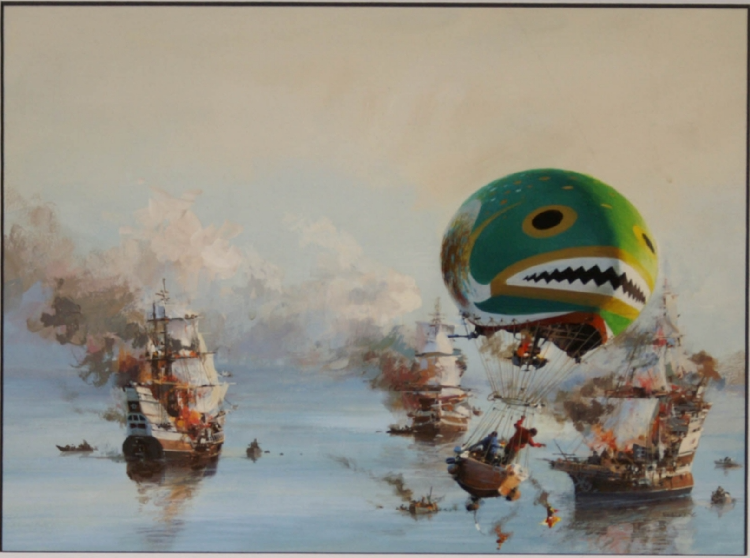
John Berkey was an earth-shattering genius painter of science fiction images. I love everything I’ve ever seen from him. And it isn’t stretching the truth to say that if you view space ships as sleek, aerodynamic vehicles with white plating, that can be traced in many ways right back to him.
Seriously.
He did these, for example:

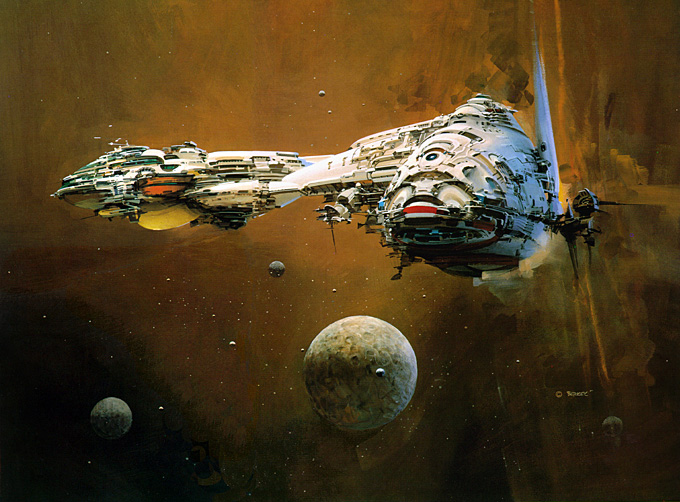
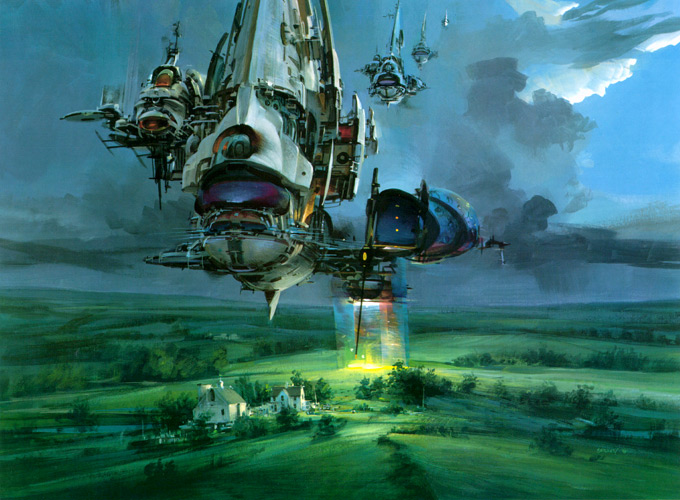
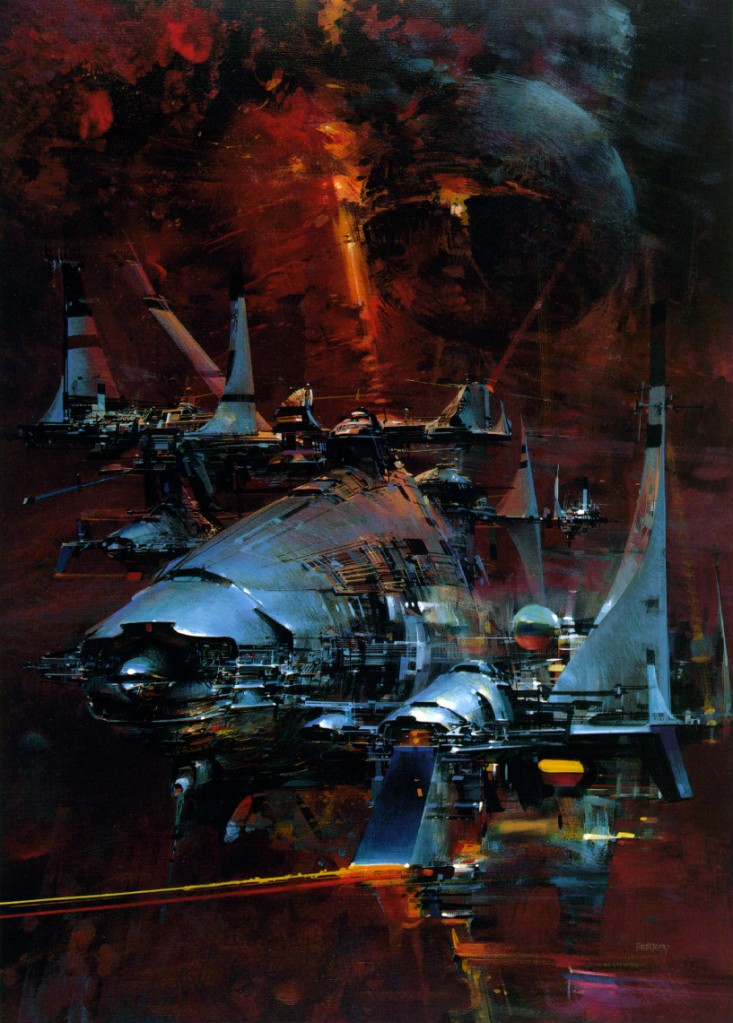
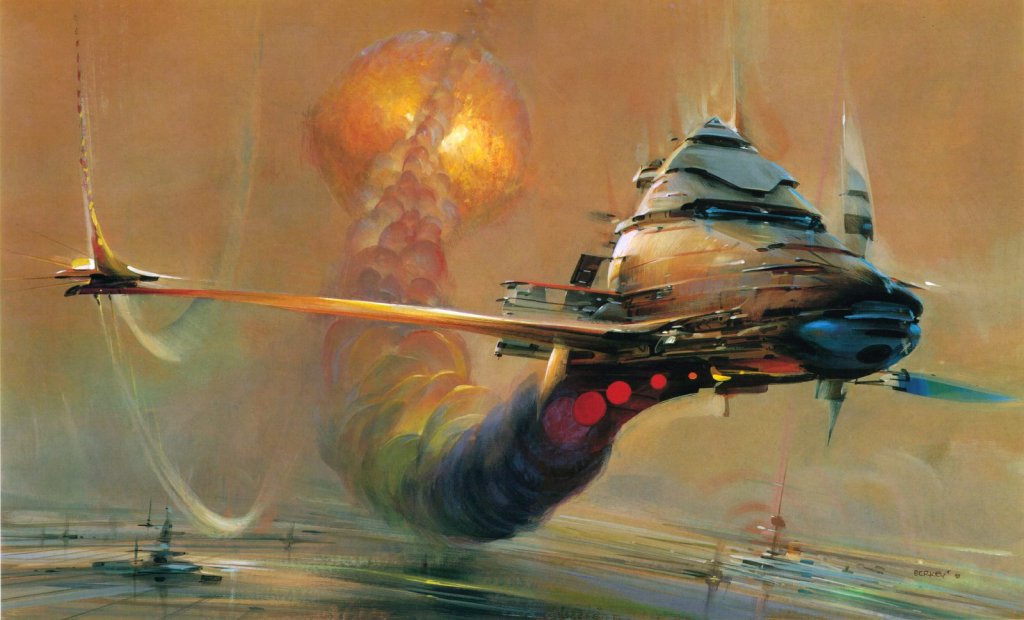
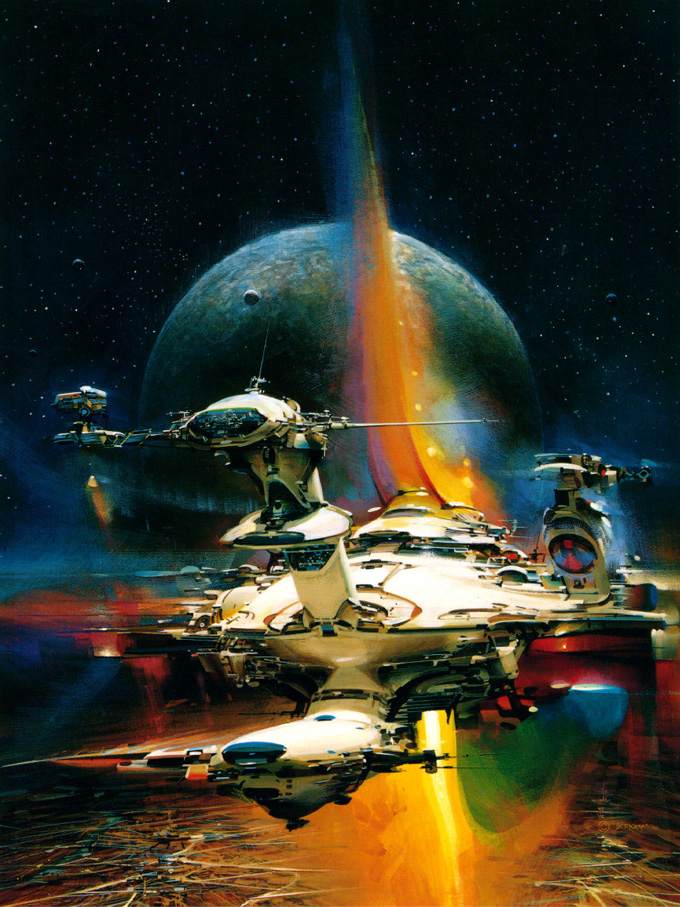
My first introduction to him way back in the day was this masterwork below, which inspired the mile-high vortex cruiser hydrofoils in the Salt Mystic universe. Just look at this beast:
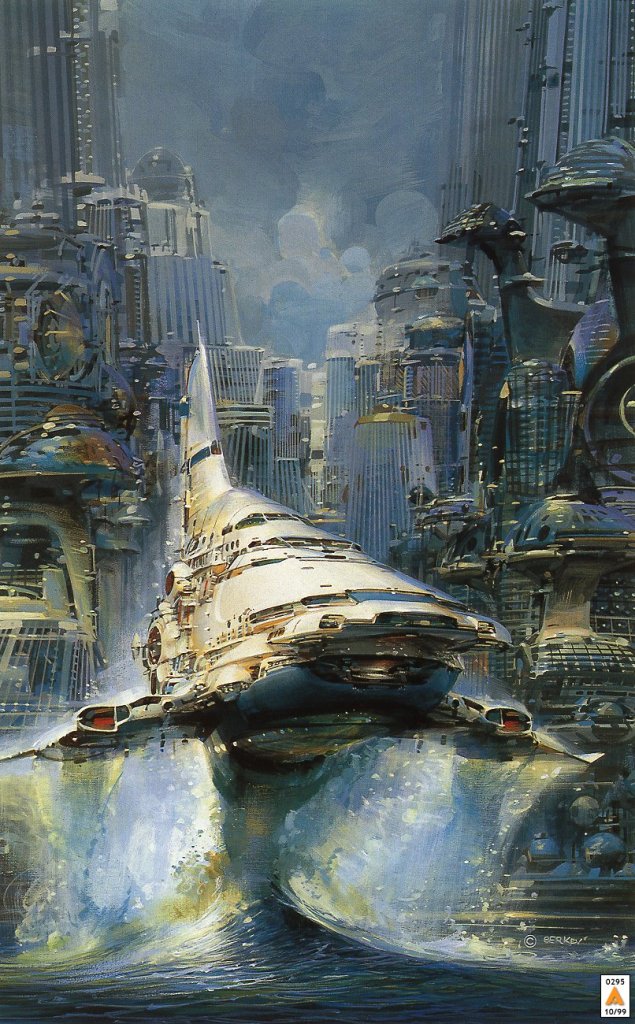
And, of course, he did this one too, which some of you may remember:
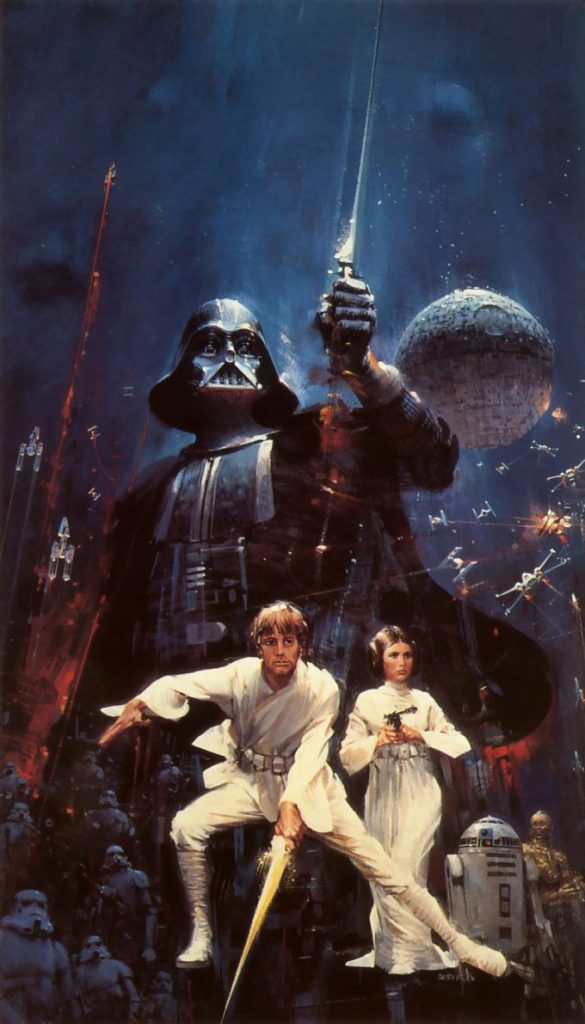
So why am I on again about John Berkey? Well, more than once I’ve seen this haunting, fascinating book cover drift across my social media feed or appear on a used bookstore shelf:
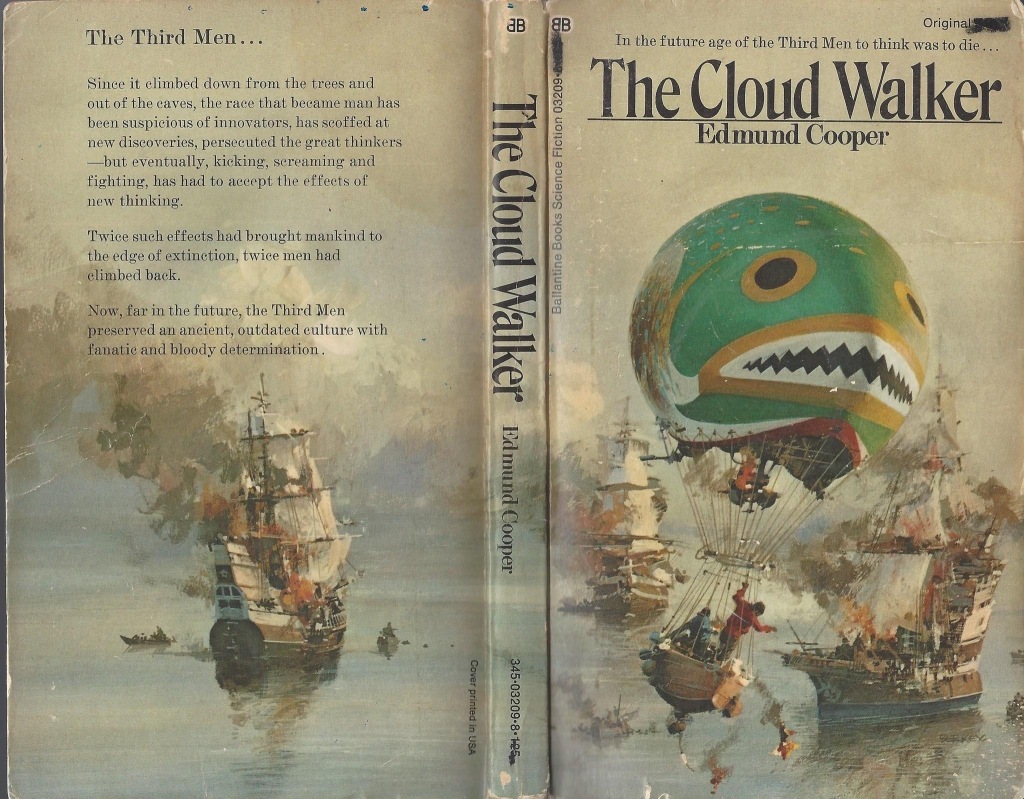
I’d never heard of Edmund Cooper, and it didn’t have space ships or a hook in the back cover text that sealed the deal, so I passed it by multiple times. I’m not that much into humanity turning away from machines because of some uprising or difficulties, like Dune’s Butlerian Jihad or Walter Miller’s A Canticle For Leibowitz. I didn’t really care who the “third men” were, or to read what I imagined would be monotonous pages with religious torch-bearing zealots yammering on in mobs to some plucky machine-builder about how evil computers could be or whatever.
Apologies if that’s your thing, I’m just a bit worn out on those tropes and don’t find them interesting. So I moved on.
But that image though.
What in the world was the deal with that crazy face emblazoned on the balloon?! I love a naval battle too. Maybe, I thought, after considering Berkey’s fascinating cover art so many times, I should read this book just to settle some questions about what he was painting.
And I’ll cut to the bottom line for you: The Cloud Walker is an easy read, with some mild, pleasant twists on the story you expect to play out here based on the cover description:
The setting is mostly the small town of Arundel in what had once been the county of West Sussex in England after two world wars have decimated the population and turned society against technology in all its forms. The protagonist, Kieron, dreams of building a flying machine, even though he knows what the Luddite priests can do to him if he’s caught. There’s an interesting love triangle, with some mild surprises in how that turns out, and a massive shift in the plot at one point – relating to a pirate invasion, and which ultimately leads to the battle portrayed in Berkey’s marvelous image.
I imagine if you’re a regular reader, you can knock this one out in a couple of days. It was a great experience for me, primarily for one key reason which honestly inspired me to write this article in the first place:
Cooper’s writing style.
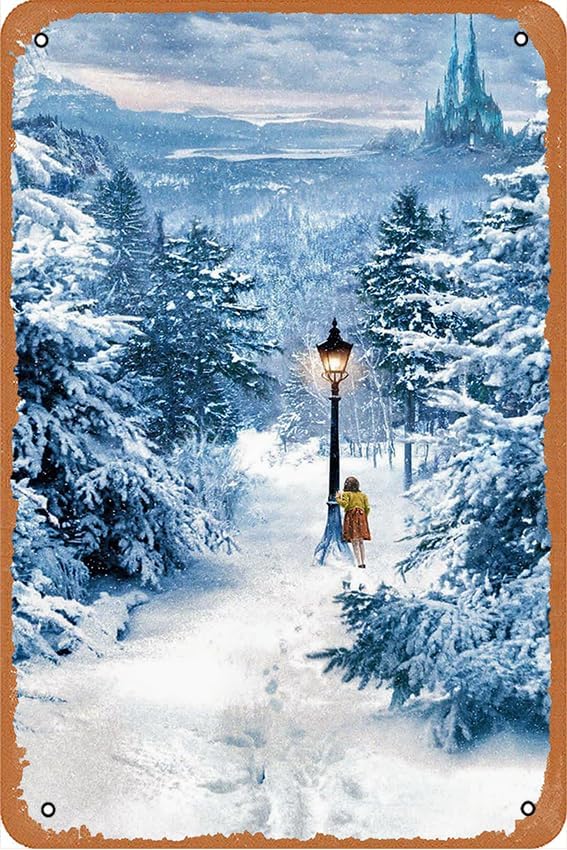

There is a style of storytelling often used in fables and myths that is charming, easily relatable, and that focuses on things common to us all like family, fear of the unknown, betrayal, and friendship. Read any of the Narnia books by C. S. Lewis or the Oz books by L. Frank Baum and enjoy a master class in what I’m talking about here. It’s in the word choice, the easy manner of painting images with words, and the awe and wonder of fantastic beasts and places like you’re sitting by a fire listening to it. Lewis and Baum knew what they were doing.
Cooper isn’t in their league; it just struck me that I was several chapters in before I knew it and sinking wonderfully deeper into his rural landscape, getting to know Kieron and his family, the two ladies, and just why he wanted to take to the air in the first place.
I won’t spoil anything here, but I feel Cooper stuck the landing on the ending (pun intended, you’re welcome).
Anyway, I liked it so much I tried another one by Cooper, called The Overman Culture.
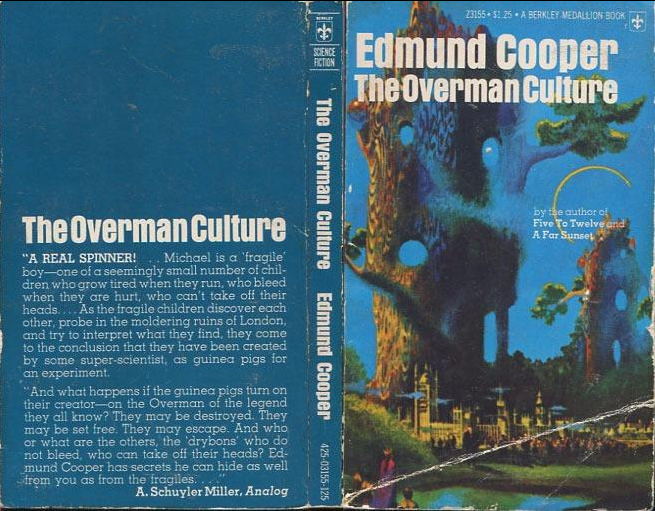
Honestly, I hated it. It was the same narrative style, just a meandering and plain mystery box story with some juvenile personal interactions and nowhere near enough happening to keep your interest. I doubt I’ll try Cooper again, though The Cloud Walker will remain with me.
Pick it up sometime if you get the chance. It feels like a comforting fable, and maybe we need more stories like that.
Till next time,
